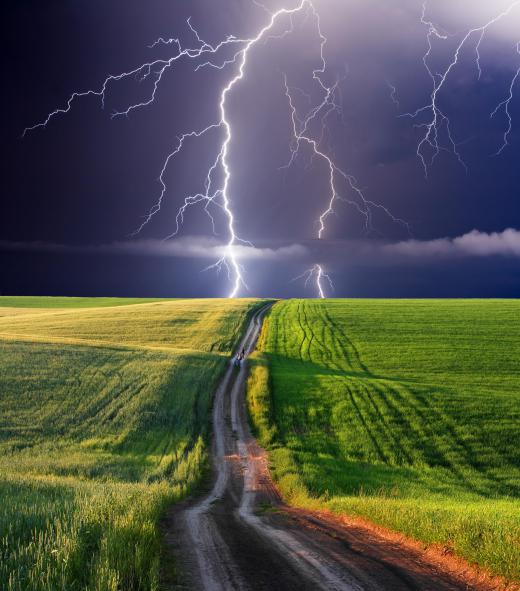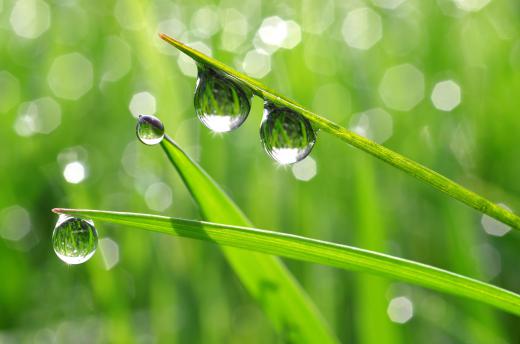How do I Predict the Weather?
Being able to predict the weather often takes specialized tools and a formal education in meteorology. For those backyard prognosticators who either do not want to depend on what someone else says or do not have access to the weatherman, however, there are some practical weather prediction tips. While these tips will not always be accurate predictors, they can certainly help more often than not. You can use a barometer, observe the sky and clouds, and even consider the smells of various parts of nature.
For those who can get one, a barometer can be a very helpful tool. Carefully observing the barometer over a period of hours should be an accurate way to predict the weather. A barometer reading that is going steadily up should mean clear weather. A barometer meter going steadily down should mean stormy weather. The barometer usually hovers somewhere near 30. Anything below this could indicate bad weather. Above 30 is usually good weather.

Cloud observation is another good way to predict the weather. Dark, solid clouds, known as cumulonimbus, are usually an indication of severe weather, including storms with much rain and wind. If the dark areas are broken by lighter or brighter colors, known as mammatus clouds, this could indicate the storm is breaking up. Cirrus clouds, which are wispy clouds kind of in the pattern of a horse tail, usually indicate good weather, but could mean there may be a change in the next day or two.

Another way to predict the weather is to look at the visibility in the sky, both in the morning and at night. This is good for both winter weather prediction and summer weather predictions. If haze is present, which can be determined at night by looking at the moon, the weather should be clear. While many people associate haze with poor air quality, it also means no moisture is present to knock particles down.

A somewhat less reliable pattern for those wanting to predict the weather is to look for dew in the morning. If there is no dew, this could be because of high winds, which mean there is the possibility of a change in the weather. If the weather has been bad in the past day, this means a low pressure system is likely being replaced by a high pressure system. If the weather has been good in recent history, the opposite effect is likely happening. If dew is present, then more of the same type of weather may be expected. In winter weather prediction, a north wind typically means dry weather, while a south wind could mean rain or snow.

While many may scoff at the phrase "smelling the rain," the smells given off by different things can be another way to predict the weather. For example, swamps usually smell their worst just before rain, because that is when they release the most methane. Flowers generally are at their most odorous just before a rain. Getting used to these smells during good weather, then noticing any changes, is a possible way to predict the weather.
AS FEATURED ON:
AS FEATURED ON:















Discussion Comments
Perhaps it's not as scientific as one might prefer, but my body tells me quite accurately when the barometer starts to go downward. Many people find this to be true of themselves, whether they experience depression, arthritis, gout, chronic pain, et. al.
Along with the basic science tools described, you can now predict weather using high tech tools, especially in high tech regions where there are a lot of sensors and dedicated websites. I've consolidated these into a how-to online, for folks in San Francisco. My effort is oriented to predicting the immediate weather, not far into the future.
Post your comments